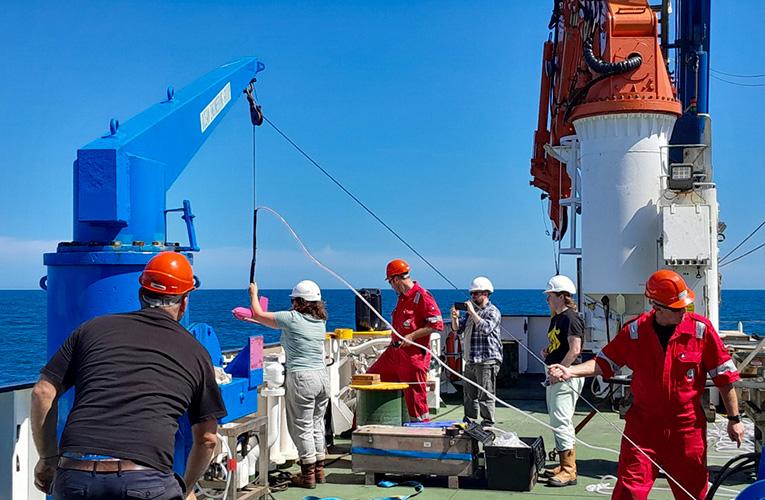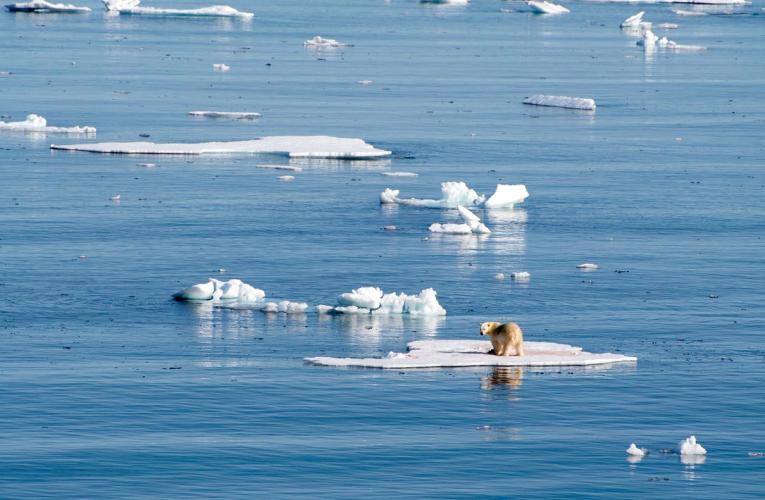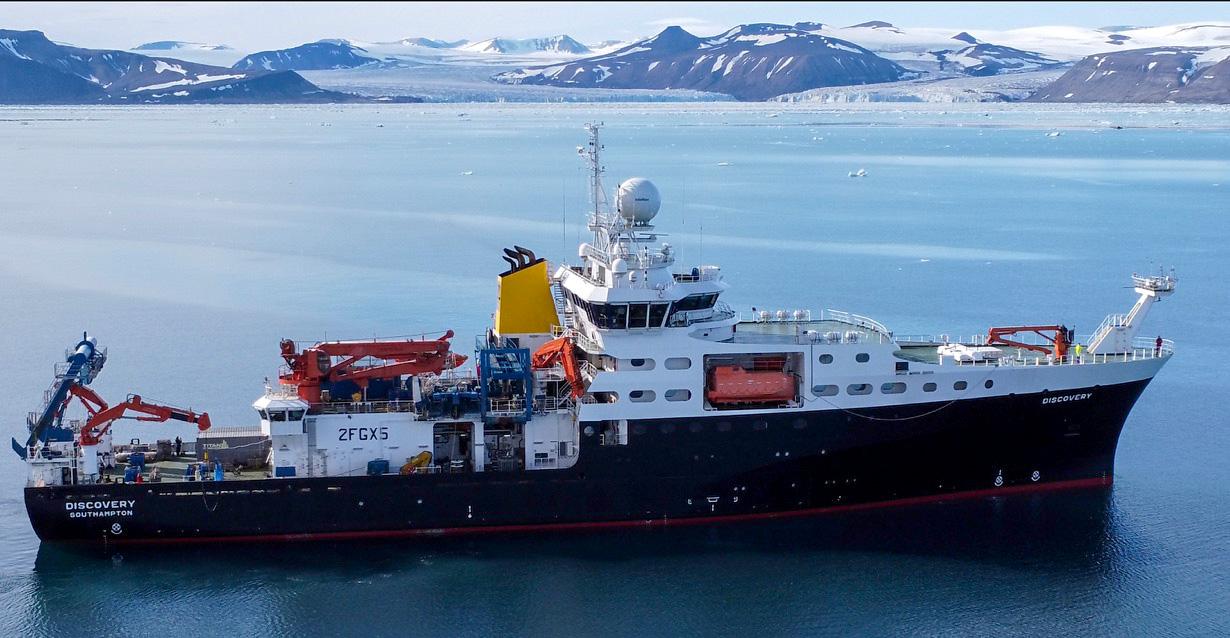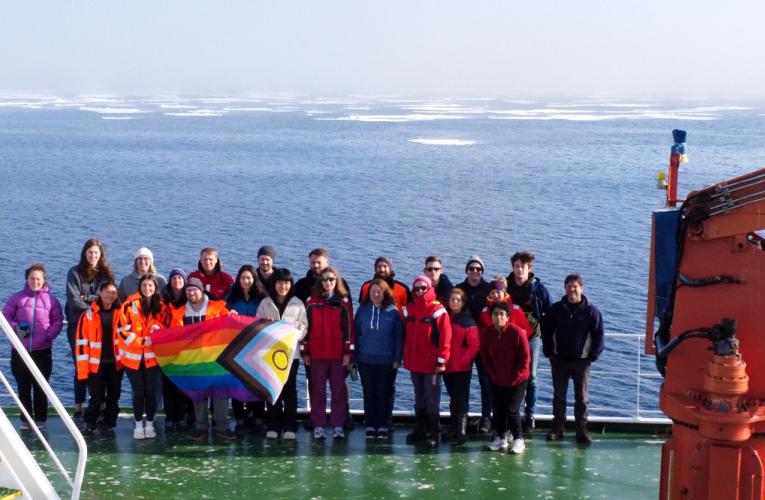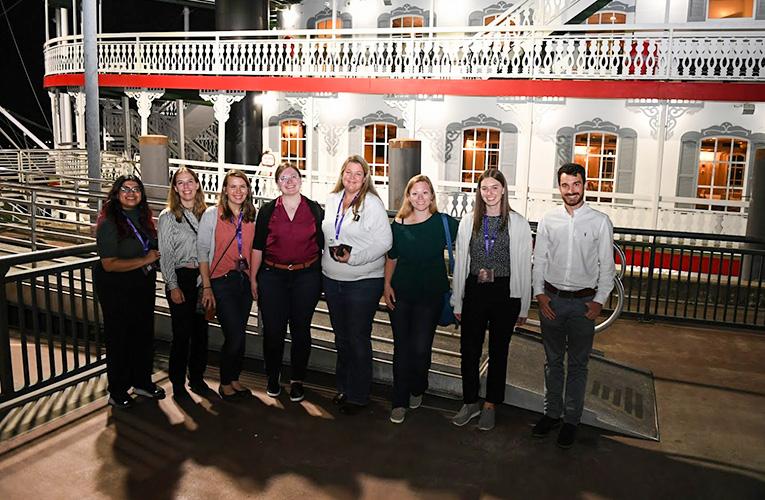The Cassar Lab, led by Nicolas Cassar, professor of biogeochemistry, focuses on biogeochemistry and ecophysiology, with the objective of constraining the mechanisms governing carbon, oxygen and nitrogen cycling, and climate. Current research interests include ocean carbon cycling and productivity, oceanic metabolic balance, marine N2 fixation, carbon acquisition mechanisms in marine phytoplankton and implications for climate and paleo-CO2 reconstruction, as well as global carbon cycle and ocean-atmosphere fluxes. The cycling of elements such as carbon, oxygen and nitrogen is critical to understanding our climate. The lab's scientific approach is interdisciplinary, integrating field and satellite observations, laboratory experiments, method development, modeling and theory.
PhD students Perrin Hagge and Katryna Niva recently shared insights into the Cassar Lab, its research, their experiences in the lab and the opportunities the lab offers Duke students.
What is the lab's research focus and what big questions is it trying to answer?
"The Cassar Lab investigates how macro nutrients like oxygen, nitrogen and carbon move through the environment with a focus on how climate change disrupts these cycles. As a biogeochemistry lab, our work is interdisciplinary and combines fields such as ecology, stable isotope chemistry, molecular biology and geophysics. The methods we use are equally varied and range from lab and field experiments to satellite inference, modeling and theory. The Cassar Lab also focuses on the development of new continuous-measurement methods which allow us to study biogeochemical systems with unprecedented sensitivity and resolution. These methods currently are being used to study the global carbon pump through oxygen and argon ratios, terrestrial and marine nitrogen fixation through ethylene concentrations and marine phytoplankton production through oxygen isotopes."
What has been your favorite or most rewarding experience in the lab so far?
Perrin: "Over the past two summers, I have had the opportunity to travel to Arctic and sub-Arctic field sites in Norway, Iceland, Greenland, Canada and Alaska. I’ve been fortunate to see puffins, seals, walruses, grizzly bears, arctic foxes, muskoxen, reindeer/caribou and lots of polar bears. Experiencing the beauty of these environments with their full complement of flora and fauna excites and inspires me. I recognize that it is a privilege to conduct fieldwork in the Arctic, and I want to ensure the knowledge we learn from our work ultimately benefits both the scientific community as well as the inhabitants and stewards of these areas."
Katryna: "Last summer, I had the opportunity to join our lab-mate Ariana De Souza on a research cruise investigating the biogeochemical dynamics of the Barents Sea and Norwegian Sea. We joined a team of twenty scientists from the UK and France and traveled on board for five weeks, enjoying the Arctic summer with 720 hours of daylight straight! We saw several groups of whales and dolphins as well as a polar bear accompanied by breathtaking views of glaciers and sea ice. Ultimately, we were able to use the fast response time of one of the Cassar Lab-developed instruments, the Flow-through incubation Acetylene Reduction Assays by Cavity ring-down laser Absorption Spectroscopy (FARACAS), to alert the other researchers to biologically dynamic areas for more intensive sampling and offered greater insight into the nitrogen dynamics of the region. Our findings in this area can now be expanded to the arctic more broadly and used as a measure of how biological activity is shifting in one of the earth’s most climate change impacted regions."
What opportunities does your lab offer students and how does that experience contribute to their academic and career growth?
“The Cassar Lab is uniquely situated to support the development of a well-rounded scientist. As we do not confine ourselves to either remote modeling work or fieldwork-centered data acquisition and interpretation, our lab meetings foster interdisciplinary discussion and our lab is equipped to tackle a broad range of research questions. For those interested in conducting fieldwork, the highly specialized nature of the instruments developed in our lab places us in high demand in research initiatives around the world. On such trips, we are granted the opportunity to collaborate with and learn from world-class researchers while navigating obstacles in a high-intensity environment.”
Each month the Nicholas School will highlight the work of one of its labs through the lens of a lab member. For more information on Duke Environment research visit our research page and to keep up with the latest news, subscribe to our monthly Research + Impact email newsletter. Explore more about the Cassar Lab on the lab's website.
